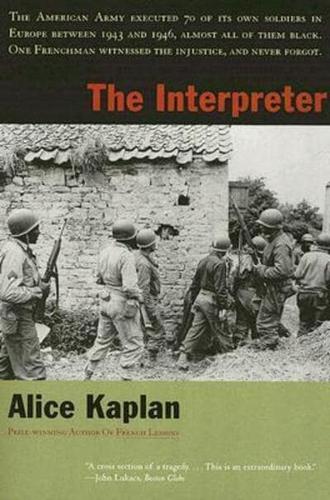Publisher's Synopsis
No story of World War II is more triumphant than the liberation of France, made famous in countless photos of Parisians waving American flags and kissing GIs as columns of troops paraded down the Champs Élysées. But one of the least-known stories from that era is also one of the ugliest chapters in the history of Jim Crow. In The Interpreter, celebrated author Alice Kaplan recovers this story both as eyewitnesses first saw it, and as it still haunts us today.
The American Army executed 70 of its own soldiers between 1943 and 1946-almost all of them black, in an army that was overwhelmingly white. Through the French interpreter Louis Guilloux's eyes, Kaplan narrates two different trials: one of a white officer, one of a black soldier, both accused of murder. Both were court-martialed in the same room, yet the outcomes could not have been more different.
Kaplan's insight into character and setting creates an indelible portrait of war, race relations, and the dangers of capital punishment.
"A nuanced historical account that resonates with today's controversies over race and capital punishment." Publishers Weekly
"American racism could become deadly for black soldiers on the front. The Interpreter reminds us of this sad component of a heroic chapter in American military history." Los Angeles Times
"With elegance and lucidity, Kaplan revisits these two trials and reveals an appallingly separate and unequal wartime U.S. military justice system." Minneapolis Star Tribune
"Kaplan has produced a compelling look at the racial disparities as they were played out…She explores both cases in considerable and vivid detail." Sacramento Bee










